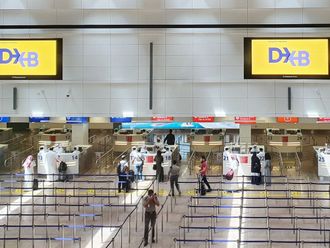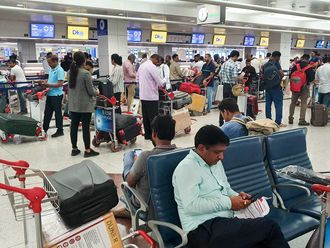Are you an unemployed Emirati? Or are you an Emirati job seeker?
An official statement made last week blurred the clear distinction between unemployment and job-seeking, resulting in an unfair underestimation of an existing unemployment issue among UAE nationals, to say the least. What we’ve done is found a groundbreaking solution to fix unemployment. We call all the unemployed “jobseekers”.
To clarify, let’s assume that you are a UAE national who studied a much-needed field of study, but still can’t find a job. If the labour market does not provide jobs that match your skill set, you are faced with two options. First option: lower your expectations and settle for any job, where you get paid a mediocre salary and the company gets to hit their quota of Emirati employees on their payroll.
Second option: keep your expectations where they naturally should be and be labelled a jobseeker for as long as the labour market cannot provide you with a job that caters to your skill set and interests.
Is there unemployment among UAE nationals? Yes, and the average unemployment among Emiratis aged 24 to 59 (prime working lives) is 4.82 per cent (author’s calculation from UAE available statistics), but youth unemployment stands at approximately 11 per cent.
Is that due to low labour participation rate? No, as that is already excluded from unemployment calculations. What is jobseeking then? And how does it compare to unemployment?
Jobseeking is unemployment when the labour market fails to offer you a job that matches your education and skill set. This could be the result of one or all of three factors. First, mismatch between supply of skills, including education, and demand by the labour market. Second, incapability of the labour market to absorb all supply, either because of a sluggish growth in jobs on offer versus supply of labour or because of an oversupply of a specific skill set.
Third, dysfunction of the labour market, where Emiratis are just not being hired. This factor was the only one that Emiratisation, a programme to nationalise jobs or set quotas for hiring of Emiratis, can attempt to fix.
Jobseeking is not unemployment when individuals do not accept what the market is fairly providing in exchange for their education and skill set. In other words, this is the very specific part where expectations must be managed, unless we are content with holders of bachelor’s degrees working in jobs that will not exit in the future.
I asked my friend, who’s been to every single job fair in the past six months, to provide me with details and numbers of jobs being offered. I discovered, to my surprise, that out of all the job fairs that he has attended, 972 out of 1,400 jobs announced and communicated via social media platforms are ones designated for high school graduates.
Putting this into context, 15,000 Emiratis graduated from private and government higher education institutions in the academic year 2015-16 (latest year for which data is available), while the labour market offers one-third of its jobs to those. As of the academic year 2016-17, there were more than 80,000 Emirati students in all higher education institutions, expected to graduate over the next four years.
Emiratisation, if ever successful, cannot fix this.
Acknowledgement of a problem is the first step towards solving it. Calling something what it isn’t is definitely not. And yes, part of the unemployment problem among UAE nationals is that of higher expectations in comparison to education level and skill set.
However, classifying all unemployment as jobseeking is unfair to every single Emirati who is unemployed not because of their high expectations or because they studied an oversupplied major, but because the labour market could not offer them the right jobs.
The last question that I want to leave you with: how can we better match demand and supply in the labour market?
The writer is a UAE based economist.












